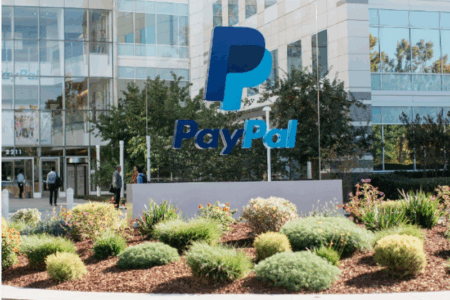Earlier in March, we witnessed one of the swiftest bear markets ever seen, with the S&P 500 losing one-third of its value in just one month.
Global investors panicked as Covid-19 wreaked havoc on economies.
It has been over seven months since Singapore recorded its first case of Covid-19.
Since then, Singapore and the rest of the world have faced a tumultuous time.
Governments, businesses and people have had to grapple with the dangers of the mercurial virus, as well as adapt processes and norms to a changed reality.
While certain businesses have made the headlines for their swift recoveries, even thriving in the pandemic, others are not so lucky.
Indeed, many other companies still face existential crises, with a difficult and uncertain path ahead. They have not recovered from the March lows, and some have even seen their share price sink even further.
Some investors might see these stocks as a buying opportunity.
Below are three Singaporean blue-chip companies that are still trading near their 52-week lows.
However, investors should look beyond just share prices to determine which are bargains, lest they fall into a value trap.
Singapore Telecommunications Limited (SGX: Z74)
Singapore Telecommunications Limited, or Singtel, is one of Asia’s leading communication groups, offering a broad range of digital services and solutions.
It also has stakes in leading telcos overseas such as South Asia, Africa and Australia.
Singtel’s share price is down over 30% year to date and is trading near its 52-week low of S$2.24.
In its latest earnings report for the quarter ended 30 June 2020, the group reported a 13.9% revenue drop, while earnings before interest and taxes (EBIT) fell 24% to S$161 million, despite receiving S$50 million in Jobs Support Scheme (JSS) credits.
The decline in sales was attributed to lower equipment sales, mobile revenues as well as deferment of projects due to Covid-19.
More recently, Singtel also launched its first 5G trial services on 1 September 2020, after winning a bid to operate 5G networks in Singapore earlier in June.
This new service could be an area of growth as Singapore aims to have island-wide 5G coverage by 2025.
However, near-term capital expenditures required to build the 5G infrastructure could put Singtel’s balance sheet under pressure.
Singtel also faces risks in terms of limited international travel which could reduce demand for prepaid SIM cards and more conservative consumer spending. Much will depend on how the pandemic develops across the world.
ComfortDelGro Corporation Limited (SGX: C52)
ComfortDelGro Corporation, or CDG, is one of the largest land transport companies in the world.
Well-known for its bright blue and yellow taxis, the company also operates buses, trains, engineering, inspection, and other services in seven countries, including the United Kingdom and China.
Its shares are trading about 40% down from a year ago, and reached a 52-week low of S$1.32 at the start of August 2020, a level last seen in 2011.
The latest results for the first half of 2020 was like something out of A Nightmare on Elm Street, with revenues falling 20% and operating profits decimated, falling 97% year on year.
The poor showing was largely due to the suffocating lockdown and social distancing measures across the world, crippling the demand for public transport.
In response, CDG has taken drastic measures, offering huge or even full rental waivers to their taxi fleet. In addition, additional PPE and disinfection requirements have caused business costs to increase.
Due to the downbeat results, CDG did not declare an interim dividend for the first time in its history.
Ridership has improved slightly as global economies come out of lockdown, but the profound uncertainty of the pandemic will certainly pose problems for the group in the near future.
SATS Ltd (SGX: S58)
SATS is a provider of gateway and food services in Asia and is the chief ground-handling and in-flight catering service provider at Changi Airport.
The airline caterer also has operations in 35 airports around the world, and partnerships with multiple national carriers.
The shares price is trading 37% lower than a year ago and is near its 52-week low of S$2.52.
In the company’s latest earnings report for the quarter ended 30 June 2020, group revenue fell 55% to S$209 million year on year, mainly down to the drastic slowdown in air travel.
The decline in sales came despite the group’s efforts to diversify its revenue sources away from aviation catering. Help from the Singapore government in the form of JSS payouts also did not manage to mitigate the poor showing.
COVID-19 has forced SATS to reshape its business model in a short span of time.
The group is taking this opportunity to train its staff, push through digitalization, and diversify its business.
With air travel not expected to return to pre-Covid levels until at least 2024, SATS urgently needs to transform themselves to have a fighting chance.
It might be worthwhile to keep an eye on their progress on this front before deciding whether SATS represents a true bargain at current prices.
Want to know what stocks we like for our portfolio? See for yourself now. Simply CLICK HERE to scoop up a FREE copy of our special report. As a bonus, we also highlight 6 blue chips stocks trading at a 10-year low. But you will want to hurry – this free report is available for a brief time only.
Click here to like and follow us on Facebook, here for our Instagram group and here for our Telegram group.
Disclosure: Herman does not own shares in any of the companies mentioned.




